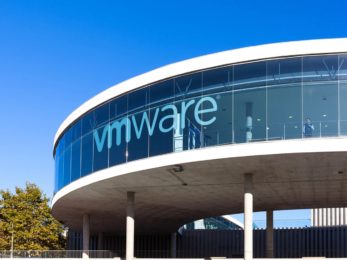 Broadcom CEO Hock Tan has defended his controversial changes to VMware’s business model claiming that before he bought the company its sales model was chaos.
Broadcom CEO Hock Tan has defended his controversial changes to VMware’s business model claiming that before he bought the company its sales model was chaos.
For those who came in late, after Broadcom bought VMware, made hugely unpopular to its licence scheme, focused on a few large customers and limited its channel.
However, Tan claims VMware’s sales model was complex and conflicting. Following Broadcom’s acquisition, VMware streamlined its sales model by significantly reducing the number of product options (SKUs), decreasing the number of channel partners, and directly managing many top customer accounts.
“Before, we had a wide range of partners, and the biggest deals received the largest discounts. This created a lot of confusion and conflict in the market. Now, customers can buy directly from VMware or through resellers,” explained Tan during Broadcom’s earnings call last week.
Following this change, the number of SKUs has been reduced from 8,000 to just four main products, and the top 2,000 strategic accounts are now managed directly.
Tan mentioned that many of VMware’s biggest customers prefer to purchase customised services directly from Broadcom.
“VMware’s top 10,000 customers are major enterprises, including the largest banks and healthcare companies. They seek highly tailored service and solutions from us,” he said.
Tan highlighted that his approach to integrating VMware differs from Broadcom’s previous acquisitions. He expressed a newfound appreciation for channel partners due to VMware’s extensive customer base.
“There are 300,000 customers – that’s quite impressive. With CA Technologies (acquired by Broadcom in 2018), we focused on a select group of strategic partners. I have to adopt a different strategy with VMware,” Tan remarked.
He acknowledged the value of VMware’s strong partner network, which includes distributors and around 15,000 value-added resellers (VARs). Broadcom has significantly invested in this network for VMware.
Broadcom has invited 18,000 VMware partners to join its Broadcom Advantage Partner Programme. While the number of VMware reseller partners has fluctuated over time, in 2023, VMware reported having approximately 25,300 reseller partners in its Partner Connect program. This suggests that around 28 per cent of former VMware partners are no longer part of the programme.
Tan reported that VMware’s revenue for the second quarter, ending on 5 May, was $2.7 billion (£2.13 billion). This is an increase from $2.1 billion (£1.66 billion) in the previous quarter but a decrease of $580 million (£458.2 million) compared to the same period last year when revenue was $3.28 billion (£2.59 billion).
Tan anticipates that VMware’s revenue will reach an annual rate of $4 billion (£3.16 billion) per quarter this year, while the company’s operating costs will decrease.
Since acquiring VMware, Broadcom has reduced its workforce by thousands and aims to lower the quarterly operational costs from about $2.3 billion (£1.82 billion) before the acquisition to $1.2 billion (£948 million) soon.
Broadcom’s revenue was reported at $12.48 billion (£9.86 billion), a 43 per cent increase from the previous year.
The company’s net income was $2.12 billion (£1.67 billion), or $4.42 (£3.49) per share. The stock price has risen 187 percent since May 2022, when Broadcom announced its intention to purchase VMware.





